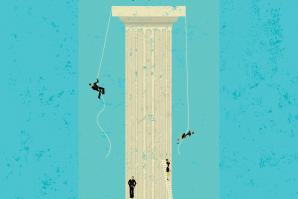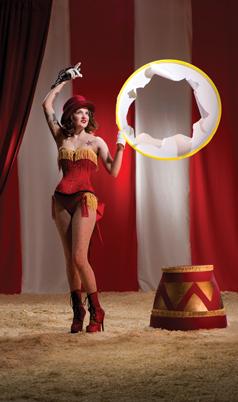If the people of California won’t vote to tax Big Tobacco or Big Oil, why does Gov. Jerry Brown think they’ll vote to tax themselves?
It’s as good a question as any as we head for November. The state budget and Brown’s governorship seem to ride on voters approving a big tax increase.
The governor faces some tough hurdles in getting his tax measure through. Proposition 30 consists of two parts: increasing income taxes for seven years on annual earnings of more than $250,000, and increasing the sales tax by a quarter cent for four years.
Polling has shown that people have little sympathy for Wall Street or “the rich,” so proposals to tax the wealthy appear popular. The governor seems to realize that our highly progressive system already depends too much on high-income taxpayers. Still, he was obligated to include the high-income tax increase as part of a forced compromise with another tax initiative. He has meanwhile insisted the sales tax must rise.
Here are the problems Brown faces as we head toward fall:
THERE ARE TWO OTHER TAX INCREASE MEASURES ON THE BALLOT
Brown wanted a ballot on which his increase was the only tax matter, but wealthy attorney Molly Munger would not back down on her measure, Prop. 38, to increase education spending by way of increased personal income taxes. Her measure is not polling well, and there is fear it will drag down the Brown proposal. To combat this, the Legislature saw to it that Brown’s measure would appear first on the ballot. Another wealthy activist, venture capitalist Tom Steyer, has a measure to repeal a corporate tax break enacted in 2009. It would raise corporate taxes by a billion dollars.
The U.S. Supreme Court also did Brown no favors when it classified the individual mandate in President Obama’s Affordable Care Act as a tax. Voters could say no to all of them.
Voters hear “the sky is falling” with every budget crisis. They don’t believe it.
CHICKEN LITTLE DOESN’T SELL
The main argument advanced by the governor and his allies is that if Prop. 30 does not pass, schools would take a huge cut resulting in an abbreviated school year. The problem with this argument is that voters hear “the sky is falling” with every budget crisis. They don’t believe it.
The consequence of drastic cuts was used years ago against Prop. 13, and it didn’t work. In 2009, former Gov. Arnold Schwarzenegger promised horrid repercussions if voters rejected his tax increase package. They did, and the horrors never materialized. Chicken Little scare tactics simply do not work with today’s voters.
PEOPLE LIE TO POLLSTERS
The Brown tax increase has not polled well. At best, it is getting a “yes” vote in the low- to mid-50 percentile in reputable public polls. The rule of thumb is that a controversial ballot measure should poll higher than 60 percent if it’s going to win.
The just-defeated tobacco tax (Prop. 29 on the June ballot) is a good example. Not one poll showed it losing, but in late polling it was running close and pollsters like Mark DiCamillo with the Field Poll warned it might not fare well on Election Day. He was right. No public polls are giving Brown the kind of lead he needs for success.
VOTERS STILL THINK THERE IS FAT TO BE CUT
Polling by various groups over the past year has shown that people think there is still waste to be cut from the budget, and they would like to see pension costs reined in. Passage of major pension reforms in cities like San Jose and San Diego in June sent a signal that voters want big savings in public pensions, and if opponents of the tax hike can make pension reform an issue, they can defeat the Brown tax plan.
There is also growing opposition to high-speed rail plans from Los Angeles to San Francisco, despite voter approval of high-speed rail bonds several years ago. These factors may tilt the debate toward spending cuts and away from tax hikes.
THE VOTER POOL WON’T HELP MUCH
Democrats seem quite convinced the high-turnout presidential election in November will give them an electorate more amenable to tax hikes. But the presidential electorate is not necessarily more likely to vote for tax increases. Many are irregular voters suspicious of government and who may not be any more inclined to vote for the Brown tax measure than the more consistent voters who turn out in primaries.
None of these factors assure the defeat of the tax proposals, but it does illustrate the institutional hoops Gov. Brown is going to have to jump through if his measure is to succeed in November.
Recommended For You

Numbers Game
Gov. Brown's tax initiative rides on voter turnout
The key issue for California’s 2012 election is turnout. The presidential election, a key motivator for voters, might be of little help this year. It’s not shaping up to be a persuasion election, despite the millions being spent on advertising. And because it’s not a battleground state, California could see participation wane.

GOP on Deck
Can the Republican contenders overcome Brown in 2014?
With just over a year until the midterm elections, California’s next gubernatorial race is starting to take shape.



